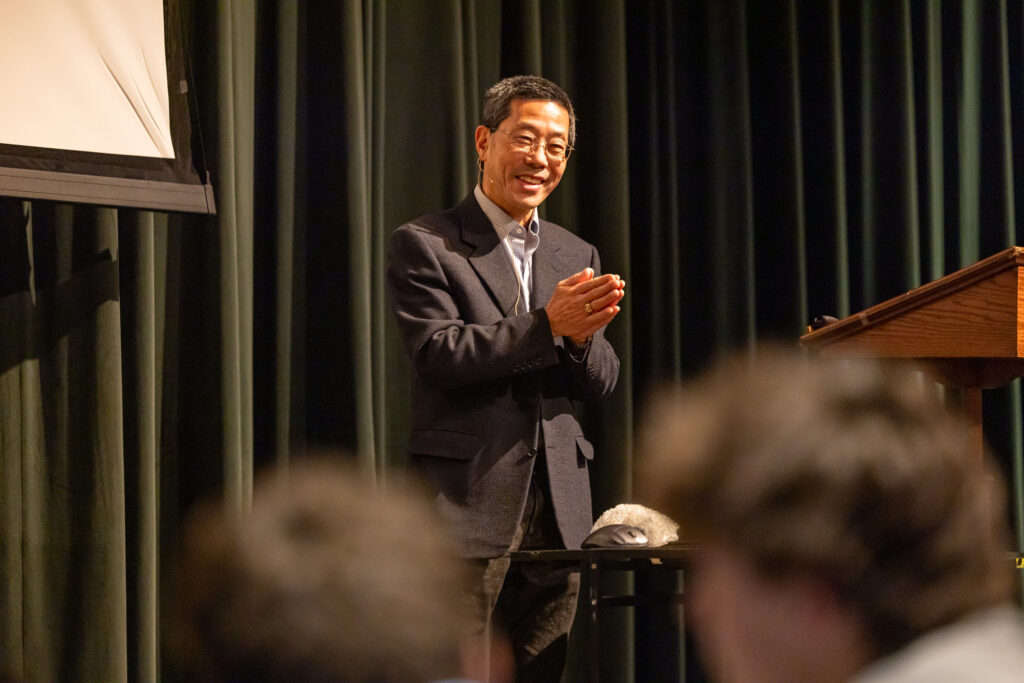Dr. Yet-Ming Chiang Delivers 2025 Wyner Lecture
“Most of what you hear about climate change is pretty grim, but today, I want to convey why there is reason for optimism and how that has driven the work that we do.” So began Dr. Yet-Ming Chiang on February 4 as he delivered RL’s annual Wyner Lecture. Dr. Chiang is the Kyocera Professor of Ceramics and Professor of Materials Science and Engineering at MIT, and father of Casey Chiang (III). The lecture series, established by Jerry Wyner, Class of 1943, and his sister Elizabeth Wyner Mark, is a living memorial to their father, Rudolph Wyner, Class of 1912. The school was honored to have Jerry ’43 and members of his family in attendance for Dr. Chiang’s presentation.
In addition to his teaching and research, Dr. Chiang has co-founded seven companies, on three of which he still sits as the Chief Scientist. The main focus of his work is innovating and implementing ways to rework existing products or invent new processes to reduce the carbon emissions produced on a daily basis. In Hall, he spoke about his two most recent companies, Form Energy and Sublime Systems, which focus on creating long-term, sustainable energy storage solutions and radically reducing the carbon output in cement creation, respectively.
“We’re at a point where we have a crisis, and in every crisis, there is opportunity,” Dr. Chiang explained. “We’ve now been asked—the scientists and engineers—to try to do something about climate change. For the first time, for most of us, we’ve been asked to reinvent a whole bunch of things that have taken our society to where it is today.”
Dr. Chiang then explained the processes and subsequent carbon output in creating or obtaining core building materials, such as cement, steel, and concrete. He then explained the innovative ways in which he and his team are working to reinvent the processes, leading to more sustainable materials that also require less energy to create. “We’re starting with natural things to create artificial things,” he explained.
Another of Dr. Chiang’s companies is focused on addressing challenges in sustainable energy, having noted that renewable sources like wind and solar are inconsistent, because the weather is ever-changing. While these methods effectively generate energy, they often need to be supplemented. His team is utilizing a readily available resource, iron, to create batteries. The batteries can then generate and store energy created through natural processes like rusting and oxidation.
Dr. Chiang and his department at MIT produce the largest number of patents per capita, more than any other school at MIT. He is using his creativity and knowledge as an engineer and scientist to evaluate and then reevaluate the ways in which materials are used in construction and energy production.
As far as climate change is concerned, he is hoping his teams’ innovations can make an impact on something that seems daunting and unnerving. “Fear as a motivator is short-lived; optimism, however, carries you for the long haul,” he reminded his audience.
After explaining his career path and current projects to the students, faculty, and staff, he fielded several questions from eager students, including inquiries about electric vehicles, AI, and ways to address aviation’s carbon output.

